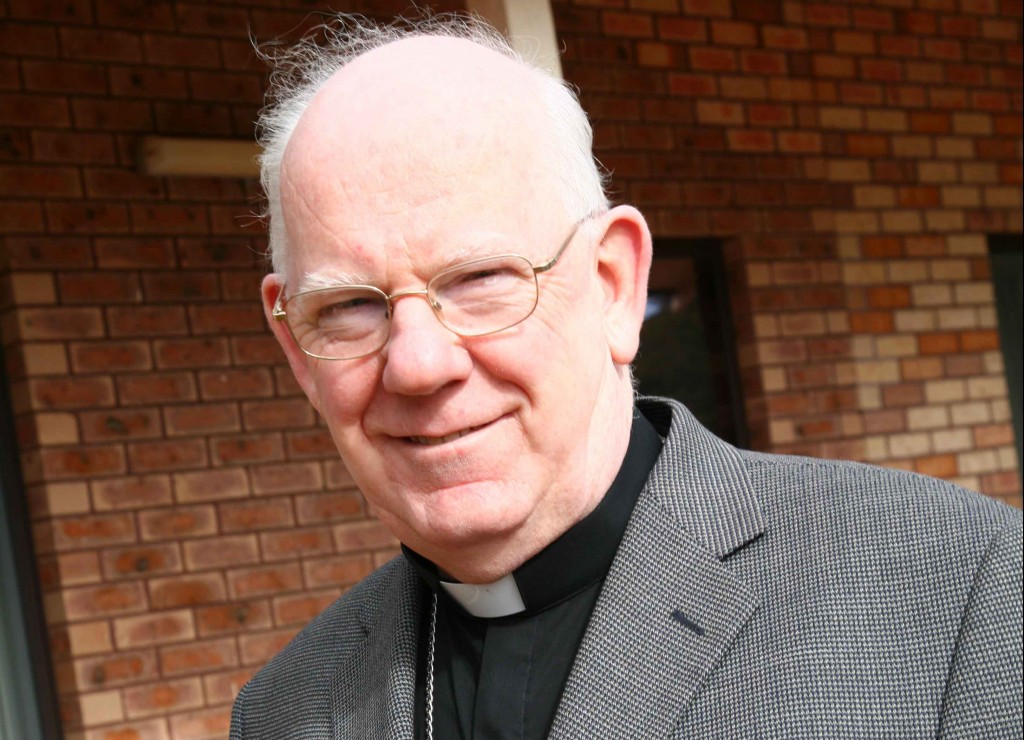
By Bishop Gerard Holohan, Bishop of Bunbury
Bunbury Diocesan Bishop Gerard Holohan has recently released a statement following the increasing news that the Australian government will soon change the current federal laws to redefine marriage.
Currently, there is a move for the Commonwealth Parliament to deny in law that marriage between a man and a woman is a distinctive relationship needing a distinctive name. The proposal is to apply the word ‘marriage’ also to relationships between same-sex couples. However, while Parliament has the power to pass such a law, it has no power to change the reality.
Prohibited relationships cannot legally marry
The test of Parliament’s own conviction about whether marriage is distinctive to male and female will be whether it removes the law which forbids men and women closely related from marrying. The reasons for this law relate to the health and well-being of children from the union.
This legal prohibition is why marriage cannot be reduced simply to a ‘loving’ relationship, as advocates for same-sex marriage claim. No one can deny that marriage is an institution which is open to children as well. Same-sex couples will never be able to conceive children naturally.
Yet, unless Parliament removes this prohibition from heterosexual marriages, the law of the land will still recognise that, regardless of whether same-sex relationships come to be called in law ‘marriages’ or not, such ‘marriages’ are not the same as marriages between men and women.
Human nature
Any study of human history shows that, while there have been wide variations, the one distinctive characteristic of marriage has been that it is a relationship between a man and a woman. This has been true regardless of such variations as polyandry (a wife having more than one husband), or simultaneous or sequential polygamy (having multiple spouses at the same time).
Marriage is the word for a relationship which stems, therefore, from human nature itself. Though this has been recognised by all major religions and cultures, marriage is first and foremost a natural rather than a religious notion.
Heterosexual and homosexual couples can never express their relationships in the same way while male and female physiologies remain different. This may be down-played by those advocating that the marriage between a man and a woman should no longer be recognised legally as distinctive, but it remains true regardless of any parliamentary law.
The Creator designed the human body to express a nuptial meaning that is love and life giving. No law can change this.
No unjust discrimination
Catholic Church teaching is that the dignity of people with a homosexual orientation needs to be respected and never discriminated against unjustly [Catechism of the Catholic Church 2358]. (Examples of just discrimination would be male and female toilets: students with high marks receiving awards: sports champions receiving prizes.)
The current argument for changing the meaning of ‘marriage’ is that people of homosexual orientation need equal rights. But exactly what rights do they not have now that a change to the law will bring?
I do not mean to be insensitive to anyone’s feelings, but reality cannot be changed by redefining a word. Is it unjust discrimination for an apple to be called an orange? Will an apple become an orange in reality if Parliament decrees it should be called an orange?
Different word for different relationship
Given that heterosexual marriages and same-sex relationships will always be radically different, the more obviously sensible course of action for Parliament would be to legislate separately for same-sex relationships.
This would not be unjust discrimination, any more than are terms such as children and adults; males and females; Australians and Canadians.
Christian belief
The role of the Church is to proclaim the teachings of Jesus. His teaching is that marriage is a life-long relationship between a man and a woman. It is a relationship that is love and life giving [eg Mark 10:1-2].
May common sense prevail
Let us promote common sense in discussions among our friends about the current proposal to deny in law the distinctiveness of married relationships between men and women by changing the meaning of marriage to include relationships which can never be the same. Let us write to politicians, urging them to recognise that the marriage between a man and a woman will always be distinctive, recognised by
- the legal prohibition against men and women in close relationships from marrying
- hundreds of thousands of years of human history across all cultures
- the nuptial meaning of the human body
- all major religious traditions.